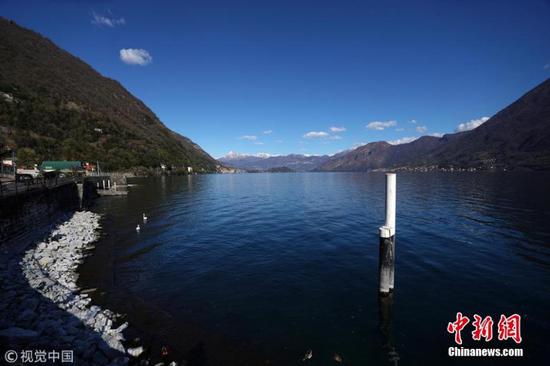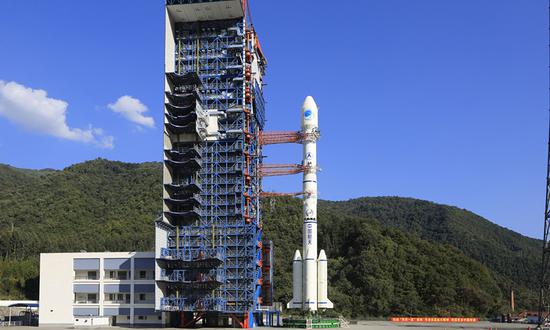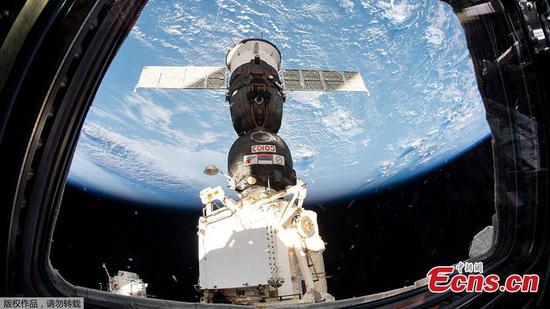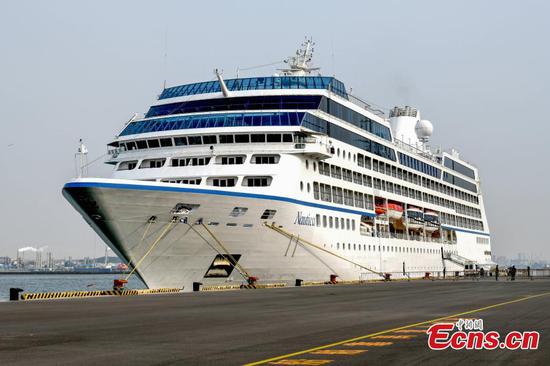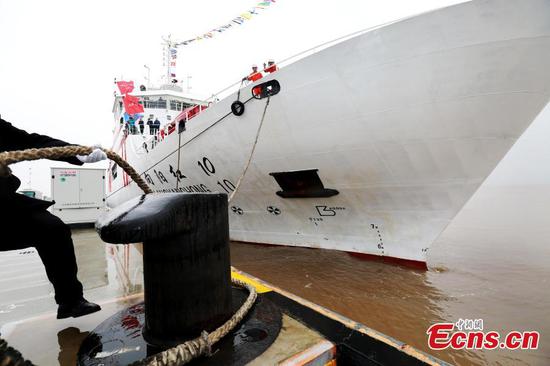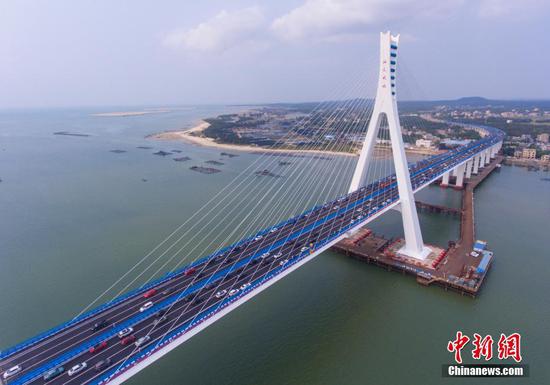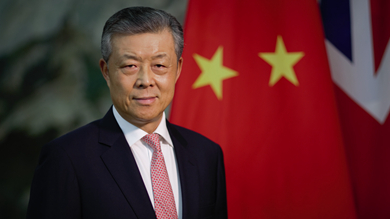
Photo from Embassy of the People's Republic of China in the United Kingdom
Asserting their nation's right to freedom of navigation has long been an excuse for certain Western politicians to flex their military muscles by sending naval vessels to the South China Sea, Chinese Ambassador to Britain Liu Xiaoming said in a signed article published in The Daily Telegraph on Wednesday.
In the article entitled with "'Gunboat diplomacy' does not promote peace", Liu said the South China Sea needs peace rather than conflict, stability rather than turbulence and it serves the interests of not only countries in the region but also all the countries in the world.
The situation in the South China Sea is not as unstable as is often claimed, the Chinese diplomat said, arguing that the only way to a proper settlement is through negotiation and consultation on the basis of the free will and sovereign equality of the parties concerned, which is exactly what China and other nations have been working towards.
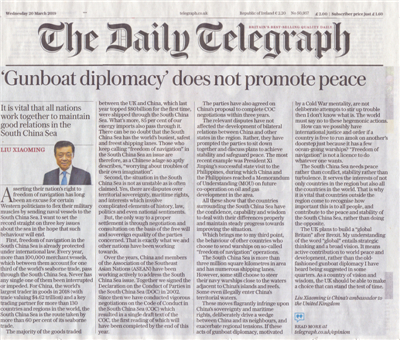
The following is the full text of the signed article by Ambassador Liu Xiaoming:
Asserting their nation's right to freedom of navigation has long been an excuse for certain Western politicians to flex their military muscles by sending naval vessels to the South China Sea. I want to set the record straight on three key issues about the sea in the hope that such behavior will end.
First, freedom of navigation in the South China Sea is already protected under international law. Every year, more than 100,000 merchant vessels, which between them account for one-third of the world's seaborne trade, pass through the South China Sea. Never has any single one of them been interrupted or impeded. For China, the world's largest trader in goods in 2018 (with trade valuing 4.62 trillion U.S dollars) and a key trading partner for more than 130 countries and regions in the world, the South China Sea is the route taken by more than 60 percent of its seaborne trade.
The majority of the goods traded between the UK and China, which last year topped 80 billion U.S. dollars for the first time, were shipped through the South China Sea. What's more, 85 percent of our energy imports also pass through it. There can be no doubt that the South China Sea has the world's busiest, safest and freest shipping lanes. Those who keep calling “freedom of navigation” in the South China Sea an issue are therefore, as a Chinese adage so aptly describes, “worrying about troubles of their own imagination”.
Second, the situation in the South China Sea is not as unstable as is often claimed. Yes, there are disputes over territorial sovereignty, maritime rights, and interests which involve complicated elements of history, law, politics and even national sentiments.
But, the only way to a proper settlement is through negotiation and consultation on the basis of the free will and sovereign equality of the parties concerned. That is exactly what we and other nations have been working towards.
Over the years, China and members of the Association of the Southeast Asian Nations (ASEAN) have been working actively to address the South China Sea issue. Together we signed the Declaration on the Conduct of Parties in the South China Sea (DOC) in 2002. Since then we have conducted vigorous negotiations on the Code of Conduct in the South China Sea (COC) which resulted in a single draft text of the COC, the first reading of which will have been completed by the end of this year.
The parties have also agreed on China's proposal to complete COC negotiations within three years.
The relevant disputes have not affected the development of bilateral relations between China and other states in the region. Rather, they have prompted the parties to sit down together and discuss plans to achieve stability and safeguard peace. The most recent example was President Xi Jinping's successful state visit to the Philippines, during which China and the Philippines reached a Memorandum of Understanding (MOU) on future co-operation on oil and gas development in the area.
All these show that the countries surrounding the South China Sea have the confidence, capability and wisdom to deal with their differences properly and maintain steady progress towards improving the situation.
Which brings me to my third point, the behavior of other countries who choose to send warships on so-called “freedom of navigation” operations.
The South China Sea is more than three million square kilometers in area and has numerous shipping lanes. However, some still choose to steer their navy warships close to the waters adjacent to China's islands and reefs. Some even illegally enter China's territorial waters.
These moves flagrantly infringe upon China's sovereignty and maritime rights, deliberately drive a wedge between China and its neighbors, and exacerbate regional tensions. If these acts of gunboat diplomacy, motivated by a Cold War mentality, are not deliberate attempts to stir up trouble then I don't know what is. The world must say no to these hegemonic actions.
How can we possibly have international justice and order if a country is free to run amok on another's doorstep just because it has a few ocean-going warships? “Freedom of navigation” is not a license to do whatever one wants.
The South China Sea needs peace rather than conflict, stability rather than turbulence. It serves the interests of not only countries in the region but also all the countries in the world. That is why it is vital that countries outside the region come to recognize how important this is to all people, and contribute to the peace and stability of the South China Sea, rather than doing the opposite.
The UK plans to build a “global Britain” after Brexit. My understanding of the word “global” entails strategic thinking and a broad vision. It means active contribution to world peace and development, rather than the old-fashioned gunboat diplomacy I have heard being suggested in some quarters. As a country of vision and wisdom, the UK should be able to make a choice that can stand the test of time.
















